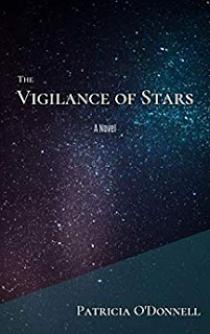Final Thursday Reading Series: Patricia O'Donnell

The North American Review is proud to be published at the University of Northern Iowa, located in Cedar Falls, Iowa. In keeping with our pride in our academic community, the North American Review is sharing interviews conducted for the Final Thursday Reading Series in Cedar Falls. Now in its 19th season, the Final Thursday Reading Series features regional authors presenting their recent work. Prior to the featured reader, an open mic gives local writers a chance to find a friendly audience for original poetry, fiction and creative nonfiction. FTRS takes place on the final Thursday of each month at the Hearst Center for the Arts in Cedar Falls, Iowa. FTRS is a collaboration of Final Thursday Press, the Hearst Center for the Arts and the UNI College of Humanities, Arts & Sciences. Today, we feature their reader from April and the original interview can be found here.

On April 29, Patricia O’Donnell returns to the Final Thursday Reading Series for a release reading of her new novel, The Vigilance of Stars (Unsolicited Press). Set in Maine, this novel takes place across generations and follows a series of interlinked characters facing difficult life decisions. An alumna of UNI and native of Parkersburg, Patricia teaches creative writing at the University of Maine—Farmington. She is the author of several books including the memoir, Waiting to Begin, and the short story collection, Gods for Sale.
Though you grew up in Iowa, The Vigilance of Stars is set in Maine, where you’ve lived for many years. Both are largely rural states, but I wonder if you find more similarities or differences between them?
Patricia O’Donnell: The small-town life in Maine feels comfortable to me, having grown up in a small town in Iowa. The people of Wilton, Maine, and Parkersburg, Iowa, both have a similar natural and unaffected warmth, and a closeness to nature. In this part of Maine more people take part in outdoor activities, as there are lakes and wooded mountains all over: kayaking and hiking and snowshoeing and skiing and ice skating. And ice fishing. The beautiful land in Iowa is so rich and productive that it is largely given over to agriculture. Maine makes more money from the tourism industry, but not so much here in central rural Maine, which actually has a high poverty rate. Maine is less populated, has more poverty, a higher unemployment rate, and almost three times the divorce rate as Iowa does, my research tells me, and that seems about right. Also Iowa, as part of the Bible belt, has more churches per capita, and religion seems to be a greater part of people’s lives there than here. Maine people are a little more reserved than the more friendly Iowans. Maddie, a main character in the book, is a person who–like me–came from the Midwest, and has lived in Maine for many years. I feel closest to her of all the characters in the novel.
The Vigilance of Stars is a work of fiction, but the book does have one historical figure, the psychoanalyst Wilheim Reich, play a notable role. How and why did you decide to include him in the book?
PO: I’ve always been fascinated by him, as a figure. I’ve visited his his lab and research center in Maine, “Orgonon,” which is open to the public. He’s been called a crackpot, but some of his ideas have a beauty to them, a poetry, and his life story is a great tragedy. I read a few biographies of him, and it was fun to imagine him into this book. He was there from the beginning.
This novel does a great job capturing varying perspectives of characters at different ages and places in life. Were some of these perspectives harder for you to write from than others?
PO: Thank you. It was fun to switch back and forth between characters. For the sections about Evie, a woman in the 1950’s who interacted with Reich, research was involved, but once I figured out how skin cancer was treated in the 1950’s, the rest came easy. It was challenging to write the perspectives of the young people from Portland, Kiya and Peter. I had to check in with my daughter about some things.
What else inspired you in writing this novel?
PO: We own a cabin on a lake in Maine, and for the story I imagined that cabin turned into a house. An island figures into the story also, and that island is one not far from our cabin. The lake, and the island, and the magic in nature, served as inspirations.
Without giving anything away, I can say that this is a book that avoids easy melodramatic resolutions. Situations change for these characters but not because of some perfect answer that pops out of nowhere. What drew you to that kind of narrative?
PO: I didn’t want to make things easy for them, because life is not easy, and easy doesn’t make good fiction. Yet I cared for the characters and didn’t want to be cruel to them. I wanted them to end up okay. “Okay” is relative, but I didn’t want to torment them or the reader more than life already torments us. I wanted to see if they, Kira in particular, could deal with some of the very difficult things that life can throw at us.
Interview conducted by: Jim O'Loughlin
Photo courtesy of Unsplash.
Recommended
Nor’easter
Post-Op Appointment With My Father
Cedar Valley Youth Poet Laureate | Fall 2024 Workshop





